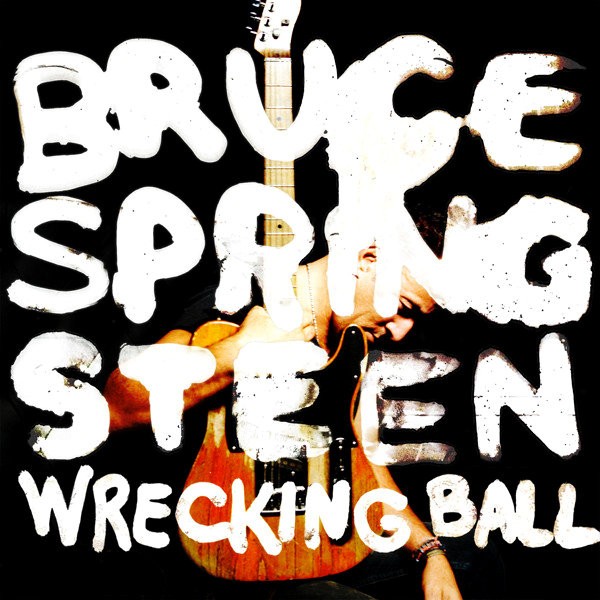The Boss is often decried by his critics as trying to portray himself as working class, a sort of intellectual fraud. Despite being decades and millions of dollars removed from his blue collar New Jersey upbringing, Bruce Springsteen still chronicles the working class ethos and struggles he built his early career on, “Freedom son is a dirty shirt, the sun on my face and my shovel in the dirt” (“Shacked And Drawn”). While it is true that Springsteen is basically an actor, this isn’t something inherently wrong. Bob Dylan, long a critical darling (and for good reason), has played any number of characters in his music over the years and been celebrated for it. Similarly, when Springsteen tries to inhabit a working man, it seems unfair to chastise him on those grounds.
On Wrecking Ball, Springsteen plays the role of the working man often. In most cases, Springsteen riffs on physical labor, such as the aforementioned “Shackled And Drawn.” Springsteen not only touches on the blue collar mentality in the lyrics, but the song is built as a rocking Irish folk song (a not-so-subtle reference to both the working class Irish image and Springsteen’s own heritage). The theme creeps up again on “Jack Of All Trades” where The Boss sings “I mow your lawn, clean the leaves out your drain… I’ll hammer the nails, and I’ll set the stone, I’ll harvest your crops when they’re ripe and grown.” Other tracks, such as “We Take Care Of Our Own,” fall more into the we’re-gonna-make-it-after-all aesthetic. Whether all this is a positive or negative depends on your perspective on Springsteen, however there isn’t a lot of diversity in the lyrical content which wears on the listener quickly.
Musically, the album teeters between the roots rock Springsteen has perfected over the years (here, often mixed with Irish folk or gospel) and over the top/stepping out of his comfort zone dreck that weighs down the album. The latter can get especially bad, such as “Rocky Ground” on which the Boss uses samples, and even some semi-rapping at about the track’s halfway point. While gospel and Irish folk are good matches for Springsteen at this point in his career, he can drive them into odd directions. The bagpipes on “Death To My Hometown” seem totally forced and unnecessary, as is the faux-Irish accent Springsteen appropriates for the performance. Fortunately there are moments that make up for such missteps. “Land Of Hope And Dreams” is a solid mid-tempo rocker that channels “Born To Run”’s escapism and finds Springsteen at his most honest. While you can’t build an entire album out of songs like this, more would have helped.
Because an artist like Springsteen comes with so much baggage and preconceived notions, it’s difficult for many to honestly grade new work. Wrecking Ball will certainly inflame the cynics and rally the believers, but what does that do for the floating voters? There’s enough here to justify listening, as there are some really good songs and performances. However, it won’t convert those who weren’t already fans of The Boss, and frankly some moments here are downright embarrassing (“Rocky Ground”’s rapping is truly that bad). Consequently, this isn’t an album that reinvigorates a career the way Time Out Of Mind did for Dylan or Ragged Glory for Neil Young. Rather, Wrecking Ball is an album that will reinforce most everyone’s preexisting opinion of The Boss, whether they be good or bad.

